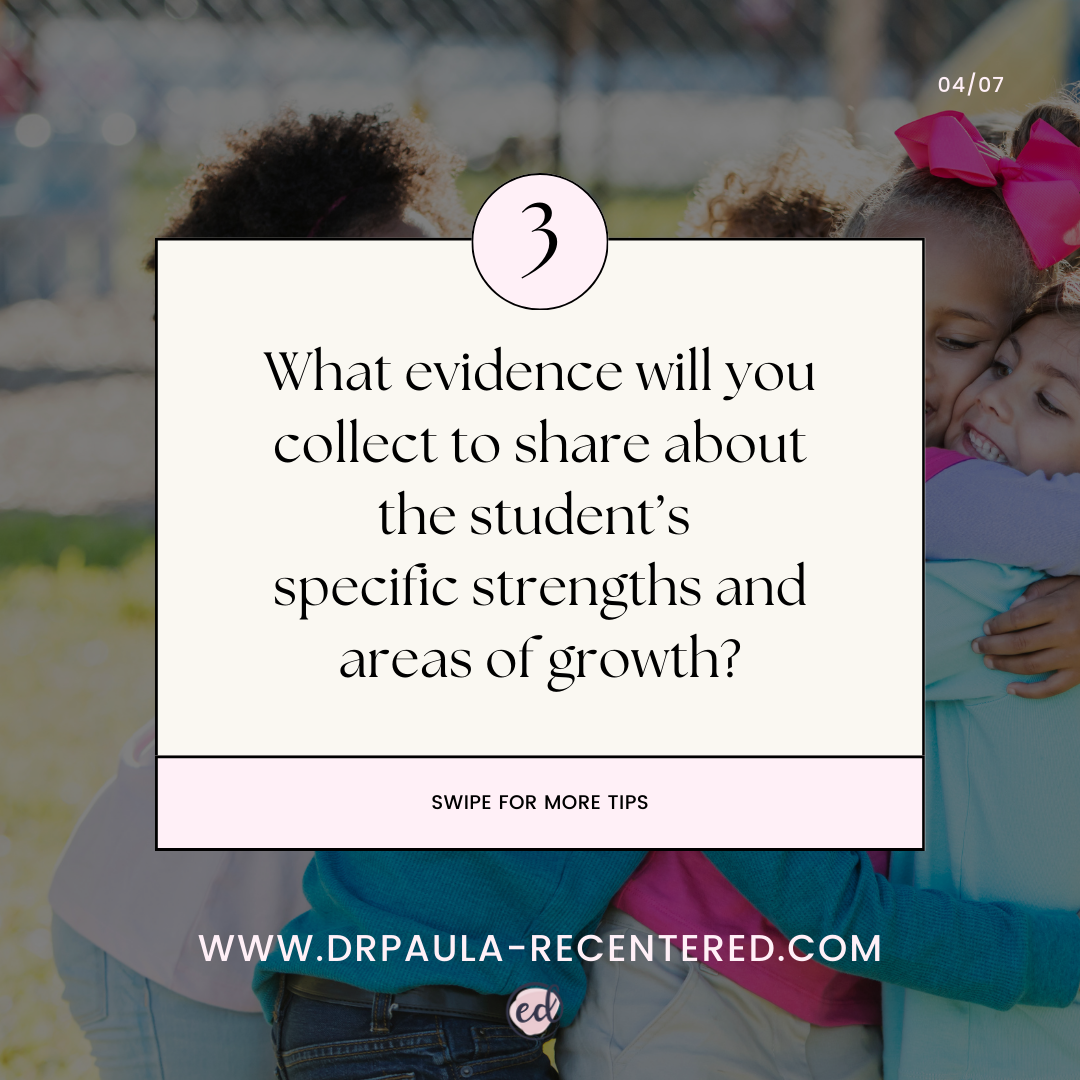five reflective questions for a meaningful parent-teacher conference
Read on for a few reminders to make your conferences feel more authentic and meaningful—to you, the families, and the students!
Ultimately all students want to be seen and their families want to know that their child is known by their educators.
Adopt a strengths- based mindset when describing individuals. For example, for the “quieter” student who might not participate as often, is this individual observant and reflective? For the “bossy” student, is this individual perhaps assertive and practicing their leadership?
Good communication skills can be one of the biggest determining factors on the success of a conference.
Active listening (good eye contact, not interrupting, affirming feelings, asking questions) are all skills that can be practiced and developed. Practice often!
Start the conference with an open heart and listen for the parents’ bigger concerns.
Have a few artifacts that show what the student can do and what they are still working on to avoid making anything feel biased.
When possible, prior to conferences, have students select some of the work that demonstrates their strengths and their growth. Involving students in this process helps reinforce the idea of a growth mindset and supports their development of metacognition, not to mention takes a bit of the burden off of you!
Some parents are not sure HOW to be a partner and are eager to support their child’s development.
An easy resource to share (or re-share) is a description of your class: the curriculum program, procedures, and your expectations. Some parents miss this in the beginning-of-the year shuffle. Allowing them to understand how your class is structured is a great way to start a partnership.
If time allows, share a one-pager that includes a list of helpful resources (websites, social media accounts, podcasts) tied to the subject and/or age group that you teach.
Don’t let parents wonder or assume!
Will you be sending a follow-up email or letter home with a summary and resources? Do you plan to just see them at the next school event? Is there a certain way they could contact you if they have questions or remember something else they’d like to share with you. Make sure you know your plan prior to conferences and be sure to communicate these expectations with the families of your students.
Parent-teacher conferences can be a powerful opportunity to connect with families, foster understanding, and support students’ growth. My hope is that you utilize the reflection questions and tips in this post to make your conferences not only productive, but also rewarding and meaningful!
Happy conferencing!





